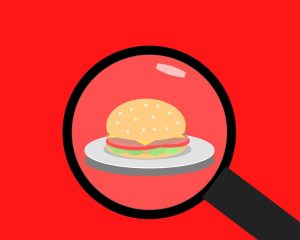A professor’s Safe Space sticker might have saved my life
October 6, 2022
Fact: suicide is the second leading cause of death by those aged 10 to 14 and 25 to 34.
When you dive into the data, you will see — according to The Trevor Project — that LGBTQ youth are four times more likely to attempt to take their own lives than other youth in their age group. The research shows that “at least one [LGBTQ youth] attempts suicide every 45 seconds.” That’s less than the time it takes you to put down your cup of coffee and re-read this paragraph.
I grew up in rural South Florida, followed by 10 years in Ohio. In Oxford and at Miami University, I had an amazing family and friend network, but still faced tremendous societal pressure to be someone other than who I am. Back in the 1990s, I often contemplated how difficult my life would be if I told anyone that I am gay — a reality that still faces youth today. That’s something straight people never have to think about.
In college, I heard constant news about young people who were beaten and tortured, left to die, for being gay, like Matthew Shepard who–tragically–became a national name. He died my sophomore year at Miami when the LGBTQIA+ club at our university of 19,000+ students had a total of seven people at the Gay Alliance meeting I attended — the one and only time I had the guts to show my face there.
That drove me deeper into the closet, ashamed by the forces of hatred. That’s when I started thinking about harming myself.
The pressures of society telling me — directly and indirectly — that my life was worth less than others’ (or more on point, worthless) led me to think that there was only one way out.
Then, one day, I saw a Safe Space sticker in a professor’s office on campus in Oxford.
I knocked.
That conversation quite possibly saved my life.
I don’t remember the professor’s name, I had never even met them, but the message was clear. I am loved for who I am. This is something I had heard countless times from my family and friends, but hearing it from a stranger was life changing.
Lifesaving.
Recently, the public schools where we live just north of Tampa, Florida, “instructed employees to remove ‘Safe Space’ stickers from all schools” to avoid litigation based on the “Don’t Say Gay” law signed by Gov. DeSantis. Pasco is not the only county already taking this extreme step to prevent lawsuits in a place — our schools — where open-mindedness and a thirst for knowledge, not suppression, should thrive. Schools like the one where my 5-year-old daughter attends kindergarten. Instead, the Florida School Boards Association says, “[D]ue to the litigious encouragement in the statutes, districts are being as proactive as they can be to avoid any liability.”
Some say that these stickers provide “special services” to certain students. That argument is an affront to everyone in this nation who has faced adversity. One parent demanded to know, “What exactly is a safe space? Shouldn’t the entire school be a safe space?”
Yes. Yes, schools should be a safe space. But let me tell you why they’re not.
I don’t know if I ever would have harmed myself, but I do know that on the day I saw that safe space sticker, my life charted a happier and more self-determined course. A course that led me to graduate from Miami with a degree in International Relations; excel at my work in the private, non-profit, and higher education sectors; earn an advanced degree; and build my own family. I now run the PR & Marketing department for Florida’s largest private, doctoral research university and proudly tell everyone I meet that I’m a RedHawk (and now a Nova Southeastern University Shark, too!).
My parents are still Oxford residents, and thankfully my story unfolded with my loving husband and daughter, but many don’t have a similar support system and their stories quite frankly are stark. My heart breaks that after the 25+ years of progress I’ve witnessed and supported, our daughter is growing up in a world that is less inclusive and provides fewer opportunities for a sense of belonging.
My passion for helping others led me to work in the civil rights field, including managing communications to overturn Florida’s ban on adoptions by gay people, as well as making it legal nationally for gay people to get married. We were thrilled to be invited to the White House last spring for the Easter Egg Roll, an acknowledgment that our family matters and the work we do to make our society a better one is noticed. I hope that others find the passion and empowerment to overcome adversity — regardless of what that looks like to them — and help make this world a better place for future generations.
So, is eliminating safe spaces from schools to avoid litigation worth the life of a child? That’s my question to you, especially those making our laws.
You may know someone who is facing the unthinkable challenge to end their life or continue living.
Keep the stickers. Save a life. And THANK YOU to that professor.
Brandon L. Hensler, M.S., APR, is the executive director of Nova Southeastern University’s Division of Public Relations, Marketing, and Creative Services. In this role, reporting to the vice president, he co-manages the planning and execution of the university’s strategic branding and integrated marketing communications plan, and leads the Public Relations team. Hensler previously served as director of University Relations and associate director of Public Affairs for NSU. Prior to joining the university, he was the director of communications for the ACLU of Florida.













